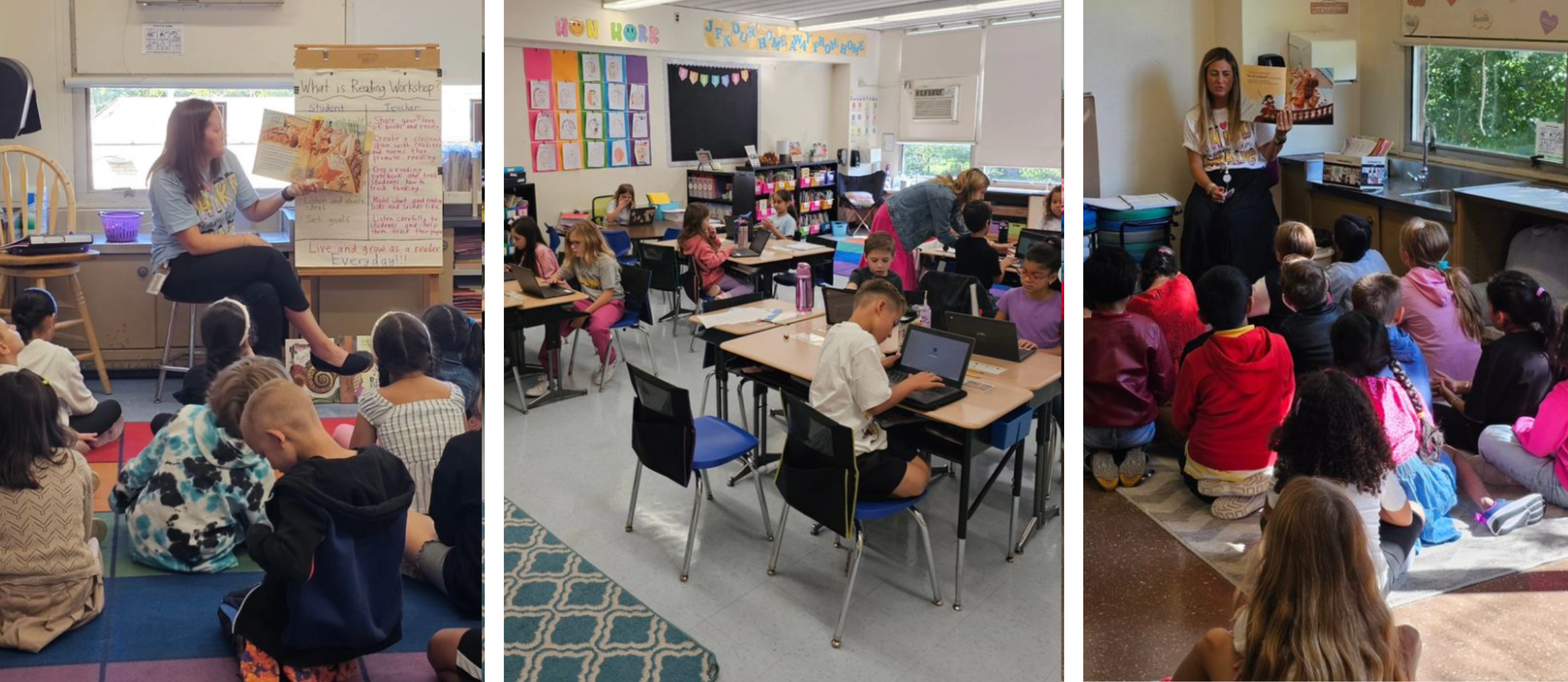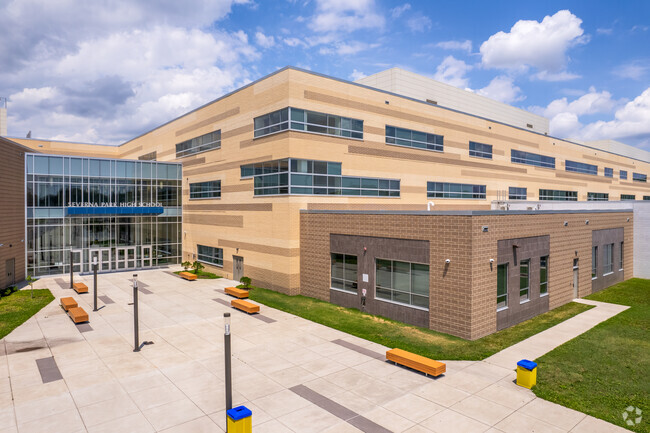Innovative Solutions to Save Temecula Schools from Budget Cuts
Innovative Solutions to Save Temecula Schools from Budget Cuts
Blog Article
Understanding the Value of Schools in Kid Development and Community Development
Schools' engagement with local communities with service-learning campaigns reinforces the bond in between families and academic organizations. This symbiotic relationship underscores the value of institutions in nurturing active citizenship and lifelong understanding behaviors.
Academic Accomplishment
Academic accomplishment offers as a foundation of child growth, providing the structure whereupon future learning and success are built. Schools play a crucial function in promoting this scholastic growth, offering organized environments where youngsters can obtain important understanding and cognitive skills. Standard educational program make certain that trainees gain proficiency in core topics such as maths, science, and language arts, which are essential for both greater education and specialist chances.
Along with giving fundamental scholastic skills, institutions also grow crucial reasoning, analytical capacities, and intellectual interest. These cognitive expertises are crucial for browsing complicated real-world scenarios and adjusting to the ever-evolving needs of the modern-day work environment. Educators, as facilitators of discovering, utilize varied pedagogical approaches to satisfy different knowing designs, therefore taking full advantage of private student possibility.
Furthermore, scholastic success is very closely linked to self-esteem and motivation. Kids who experience scholastic success are most likely to establish a favorable self-concept and a long-lasting passion for learning. Institutions likewise supply different resources, such as libraries and innovation, which even more enhance the academic experience and prepare trainees for a highly innovative culture.
Social Ability Growth
Beyond scholastic success, the role of institutions in social skill development is essential. Schools offer as a key place for youngsters to discover and exercise crucial social abilities such as teamwork, interaction, and dispute resolution. In the organized atmosphere of a class, pupils engage with peers, instructors, and various other college personnel, using various possibilities to establish these vital capabilities.
Effective social skill development in colleges is promoted via team tasks, collective tasks, and extracurricular programs. These interactions aid trainees understand social norms, develop empathy, and cultivate a feeling of community. As an example, group tasks instruct trainees exactly how to interact in the direction of a typical goal, pay attention to various viewpoints, and browse differences constructively.

The cultivation of social skills during academic year lays a foundation for future personal and specialist relationships. Save Temecula Schools. As students develop, the capacity to efficiently connect and work together becomes progressively essential, highlighting the college's essential function in holistic youngster advancement
Direct Exposure to Diversity
Exposure to diversity in institutions is basic to fostering an inclusive mindset and broadening trainees' viewpoints. Schools serve as a microcosm of the broader society, and experiencing diverse cultures, languages, and socioeconomic backgrounds within this atmosphere furnishes trainees with crucial abilities for browsing an increasingly globalized globe. This direct exposure urges compassion, lowers bias, and advertises shared respect among peers.
Diverse classrooms also boost social and cognitive growth. Study suggests that trainees who communicate with peers from varied histories show far better analytic skills and imagination. They learn to appreciate different viewpoints, which enriches class conversations and promotes a much more vibrant discovering experience. Additionally, this understanding of diversity prepares trainees for future offices Click Here that worth multicultural competence.

Area Involvement
The advantages of diverse class expand past the school walls, fostering a strong sense of neighborhood engagement amongst pupils. By communicating with peers from different social, socioeconomic, and ethnic histories, pupils gain a broader point of view and an admiration for diversity. This exposure motivates them to come to be energetic citizens who agree to contribute positively to their communities.
Institutions that emphasize community engagement typically integrate service-learning jobs, which enable trainees to deal with real-world issues while using academic skills. These projects not just boost pupils' understanding of their coursework but also instill a feeling of duty and compassion. Collaborations between colleges and regional companies offer students with possibilities to take part in area occasions, additionally solidifying their function as proactive neighborhood members - Save Temecula Schools.
Furthermore, adult and area participation in colleges strengthens the bond between academic institutions and the communities they serve. Via these efforts, institutions play a pivotal function in supporting community engagement and cultivating social growth.
Lifelong Learning Habits
Establishing long-lasting understanding routines is essential for a child's constant growth and flexibility in an ever-changing globe. Institutions play an essential function in instilling these behaviors by developing an environment that promotes curiosity, vital reasoning, and a love for understanding. With extracurricular tasks and varied educational programs, teachers urge pupils to discover numerous topics, assess info critically, and apply their discovering to real-world scenarios.

Furthermore, institutions provide an organized environment where kids can establish self-control and time management skills, both of which are essential for constant knowing. By highlighting the value of establishing goals, reviewing progression, and adjusting strategies, universities prepare students to browse the complexities of grown-up life, guaranteeing they continue to be lifelong students and factors to society.
Conclusion
In verdict, schools are crucial in fostering child development and community development by giving settings conducive to scholastic success, social ability development, and exposure to diversity. Ultimately, schools grow long-lasting learning behaviors, gearing up people with the essential understanding and skills to contribute favorably to culture.
In the organized environment of a class, trainees communicate with peers, teachers, and other college personnel, offering various possibilities to create these critical capacities.
In significance, direct exposure to diversity within institutions not just improves individual trainees but also reinforces the social textile of the neighborhood as a whole.
The benefits of diverse class extend beyond the school wall surfaces, promoting a strong feeling of community engagement among trainees.Schools that highlight neighborhood engagement usually integrate service-learning jobs, which enable students to attend to real-world problems while using scholastic skills. Collaborations between colleges more tips here and regional companies give trainees with possibilities to take part in neighborhood events, further strengthening their function as positive neighborhood members.
Report this page